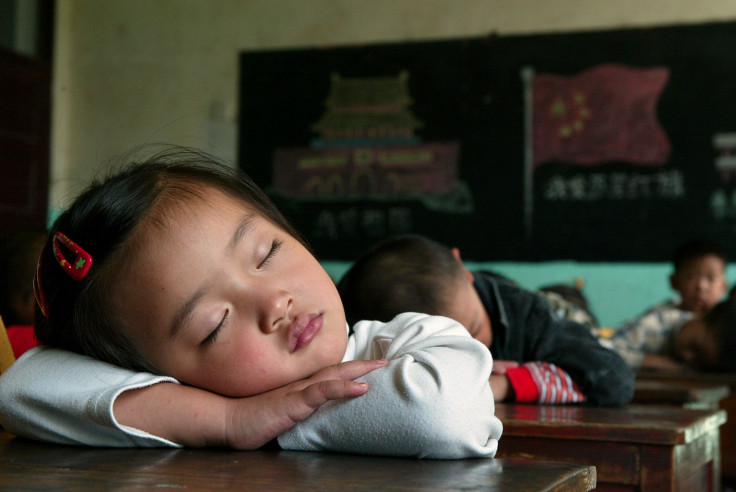Early bedtime more important for kids than having long sleep, says new study

Getting children to bed early may be more important than ensuring they have a long sleep, suggests a new research from Australia-based Murdoch Children’s Research Institute.
A study by lead researcher Dr. Jon Quach provides valuable information for parents, many of whom are aware about the importantance of long sleep overall for their kids but do not know much about how significant the bedtime itself is.
The study, which involved 3,600 Australian children, is reported to be the largest of its kind and the first to decisively show how crucial it is to get young ones to sleep earlier. Quach and his colleagues from the institute and at the University of New England presented the study at the Australasian conference, Sleep DownUnder 2015 in Melbourne.
To analyse sleep and lifestyle data of the participants, the team obtained information from parents of children at ages four to five, six to seven and eight to nine who participated in the study. The researchers divided children into four groups: those who were early to bed and early to rise; early to bed and late to rise; late to bed and late to rise; and late to bed and early to rise.
The researchers set 8:30 p.m. as the benchmark of their study, classifying kids who were asleep by this time as those who are early to bed, while those who fell asleep after this time were identified as late-to-bed kids.
Results show children who slept early have better health-related quality of life. In addition, the team found that the kids’ mothers have improved mental health, compared to moms of kids who slept after 8:30 p.m. Getting kids to bed early is not just great for them, it’s good for the parents too, Quach said. He noted that these benefits were seen in all early-to-bed kids regardless of whether they woke early or slept late.
The researchers noted that the study was not able to establish a link between bedtimes and children’s cognition and learning, behaviour or weight. However, a South Australian research presented at the same conference was able to conclude that being early to bed and rising early may trim the waistlines of older children.
Together, these large Australian studies suggest that kids’ bedtimes have a deeper impact on children’s and parents’ lives than previously thought.
The Sleep DownUnder 2015, which concluded Oct. 24, included presentations on sleeping problems like snoring, insomnia, narcolepsy and coffee addiction. Studies were also presented about the damaging effects of cigarettes, video games, mobile phones and fights before bedtime.
The conference also provided new ideas to help Australians sleep better, including a meditation technique, a diet rich in veggies or and pre-bed mug of milk extracted from sleepy cows.
Contact the writer at feedback@ibtimes.com.au or tell us what you think below.





















